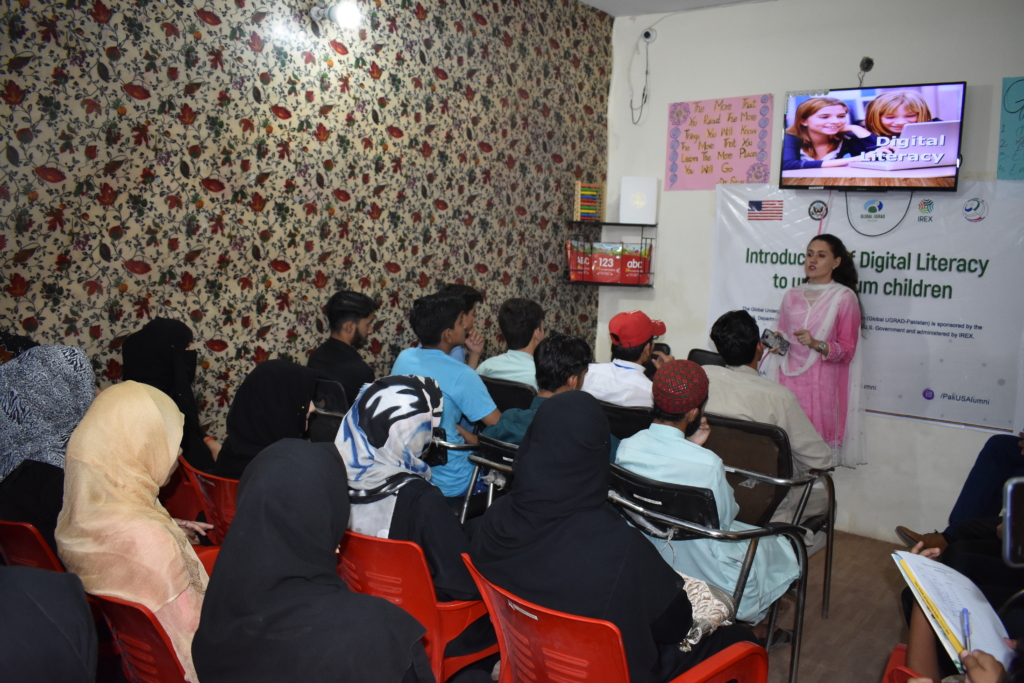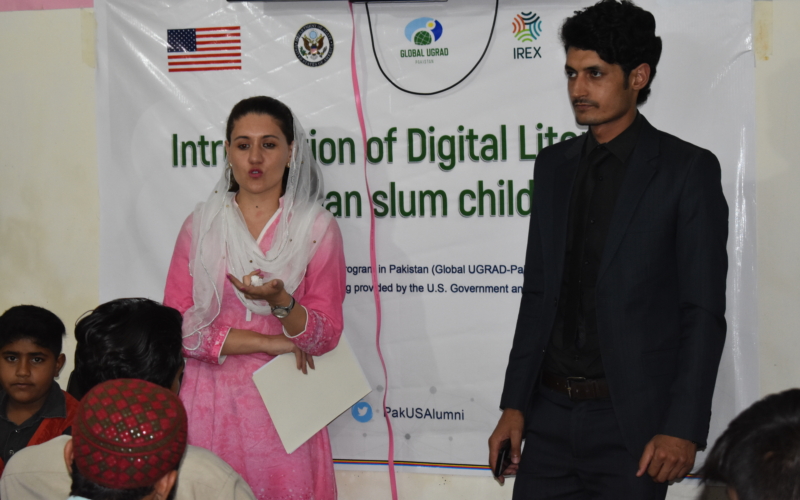We live in an increasingly complex and evolving world, with many terming this period as the ‘Fourth Industrial Revolution’. Bringing about disruption in almost every industry, this transformative period is led by digitization and technological evolution and any country that aims to do well economically and socially must put digitization and technology at the heart of all its efforts.
While working at the education department in an urban slum in Rawalpindi, Bushra Khanum firsthand witnessed low digital literacy among students and decided to do her bit in filling this gap.
In Dhok Hassu, an urban slum in Rawalpindi, where most families generally lack the finances to afford even basic quality education for their children, introducing them to computer technologies or sending them to digital training courses is next to impossible. With the help of Pakistan-U.S. Alumni Network (PUAN), Bushra decided to organize a workshop in Dhok Hassu to provide free-of-cost, basic digital literacy skills to school students through a computer instruction module.
The workshop helped train more than 35 children on computer-based skills including using web browsers and search engines, creating and uploading videos, sending emails and using paint programs. They were also taught ways to use these digitals tools and skills for their schoolwork. Bushra invited mentors from PUAN to share their experience and skills with the students, including Mr. Haroon Rasheed, UGRAD Alumnus 2017 who is a gold medalist and a computer engineer and Mr. Rizwan Muhammad, a Computer Science graduate from FAST-NUCES University, who is currently working as the IT Manager in TechScape Pvt Ltd. He contributed to the session by engaging the students in an activity to solve a simple life problem which helped them use their critical thinking and creativity. Mr. Faisal Shabbir, another PUAN alumnus, shared his experience about freelancing and discussed the scope and methods of freelancing. He also shared resources with students and practically demonstrated how they can use freelancing during their academic life and careers going forward.
Furthermore, students were encouraged to share their learning at their homes and schools and the participating teachers committed to promote digital learning and skills in their respective schools.
To keep up with the ever-evolving technological demands of the modern world, Pakistan needs to invest in digital literacy to ensure that our youth and succeeding generations are fully equipped with the skills and knowledge necessary to succeed professionally.


